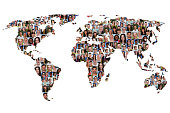The holiday season of giving and receiving is coming, and you may wonder whether you should give presents to your supervisors and colleagues. Is there a general rule of thumb regarding workplace gift-giving? I have heard that it should be a top-down flow, i.e. from bosses to floor personnel, rather than the other way around. Giving presents to superiors depends on the circumstance. For example, staff can collect money to purchase a present for a manager who is leaving or getting married. This gift and the accompanying message should be professional in style. Is cash an acceptable gift to superiors? Of course, not, but a voucher can be justifiable. There should definitely be no gift-giving during the appraisal period or the annual performance review.
Employees can exchange gifts with each other. However, giving to receive is a no-no. If you feel like you’re losing something by giving, you are not genuinely giving; you’re sacrificing, which can lead to disappointments or regrets later. Not everyone has the means to buy presents for colleagues or contribute to a gift collection for a boss, particularly at this time of economic crisis and insecurity. The good news is that non-material presents often last longer, and these can be a compliment, attention, time, or patience that builds relationships or maintains peace.
When living in Australia, my co-worker’s daughter-in-law distributed boxes of curried rice to all her colleagues, friends, and family as Christmas presents. I don’t have a signature dish, so I won’t do what she did, but I will go the extra mile to come up with something creative and valuable (I’ll tell you what in my next post).
My students have told me they are not allowed to receive presents worth more than 50 euros from external collaborators in their organisation. For gifts that cost less than 50 euros, they must share these with their colleagues.
How about doing random acts of kindness at work and elsewhere? For instance, saying hello to a co-worker you haven’t spoken with for ages. How about sending emails, text messages, and cards with cheerful greetings and messages? A few months ago, my ex-students invited me to lunch. One of them said that the birthday card I gave her more than 10 years ago is still in her drawer, and she smiles every time she sees it.
My memorable gifts in 2020 were the five-star book reviews on Amazon that have had a positive snowball effect on me. I don’t know and have the contact details of these generous readers, so I haven’t thanked them. I hope this message reaches them (better late than never): I appreciate what you have done and wish to return your kindness one day. “We make a living by what we get. We make a life by what we give.” – Winston S. Churchill.
“It’s not how much we give, but how much love we put into giving.” – Mother Teresa






